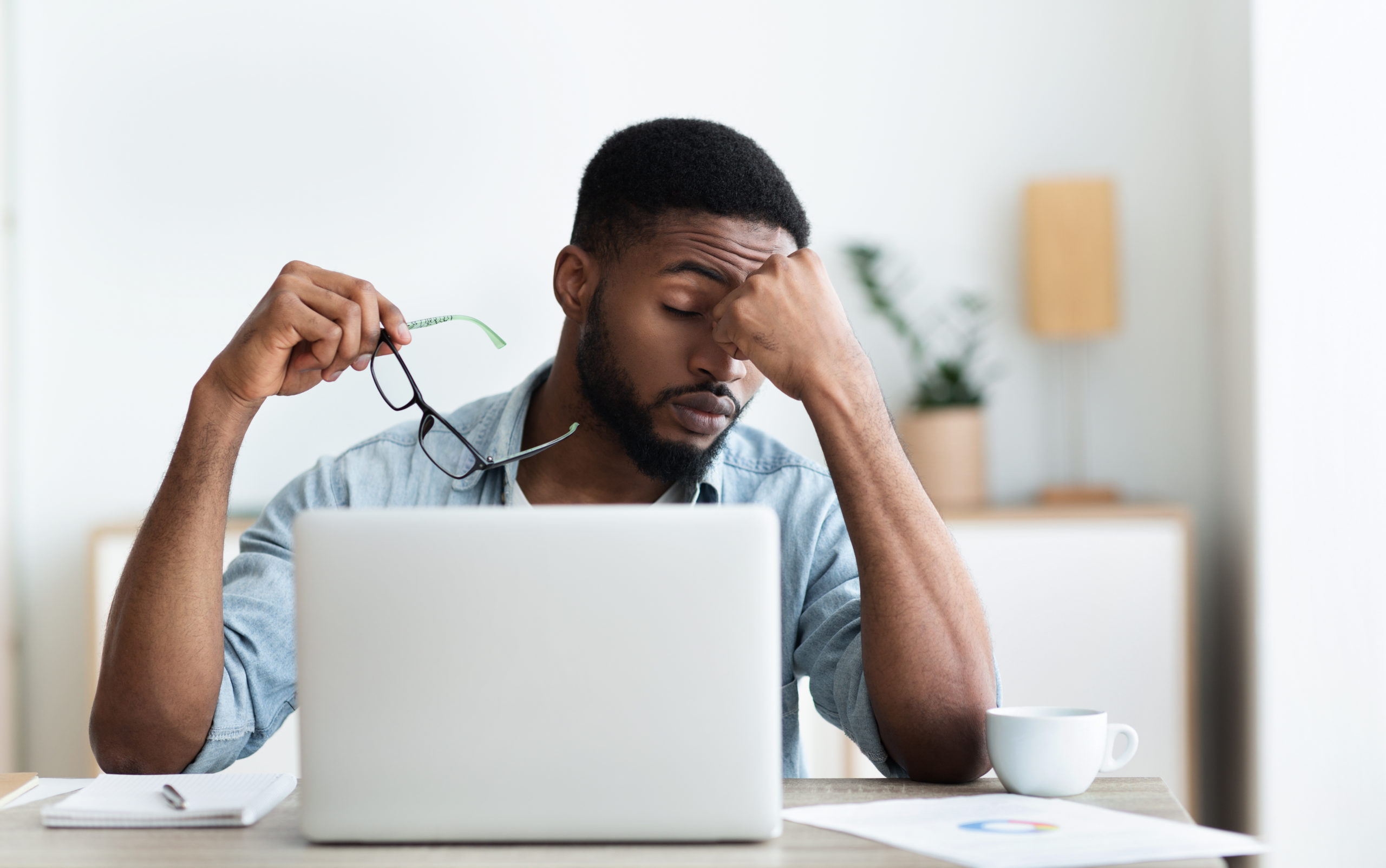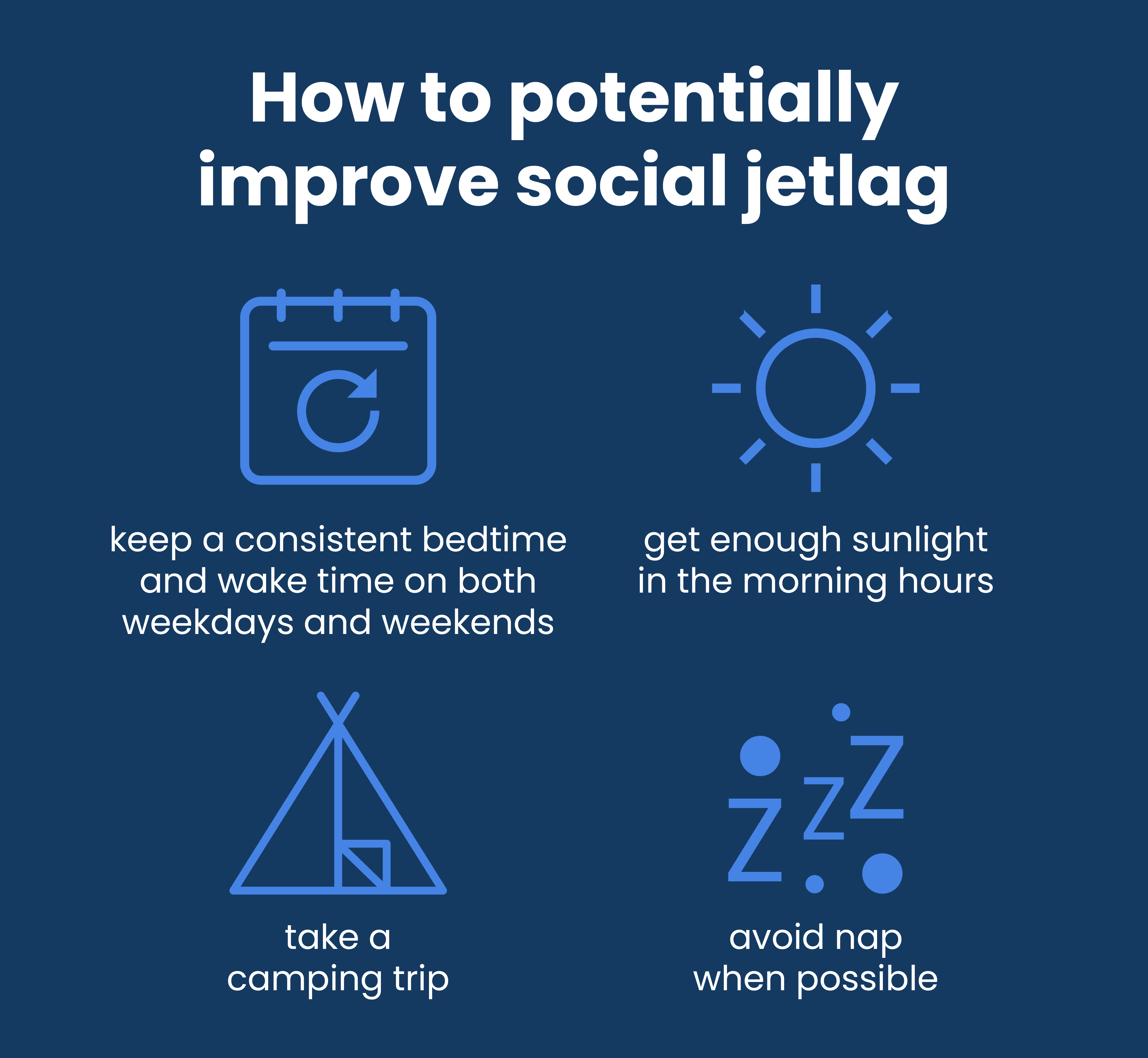The Term ‘Social Jetlag’ is Not a New Phenomenon. But Here’s Why It’s Making Headlines Lately

What is Social Jetlag?
Many of us are probably familiar with the term jetlag – and many of us have, at some point, experienced its debilitating effects firsthand – but what happens when the effects of jetlag happen every week? This kind of jetlag is not caused by a transatlantic flight from London to Los Angeles, and symptoms don’t just wither away once you’ve acclimated to the change in time zones. Unlike travel-based jetlag, this form of social-based jetlag happens when you have drastically different sleep patterns on the weekends compared to typical weekdays, often because of social obligations that dictate when you wake up and fall asleep.
Take this scenario as an example:
After going to bed at 10PM and waking up at 6AM Monday through Friday for work, you finally decide to stay up well past midnight on Friday night and Saturday night for an evening with friends or family. As a result of the late night out, you sleep in each subsequent day until around 10AM – well past your original 6AM alarm. If you’re used to waking up during the week at 6AM, and on the weekends don’t wake until 10AM, you’ve essentially flown cross-country, passing multiple time zones.
Then, on Monday morning, you’re exhausted since you couldn’t get to bed on time to get your 8 hours of sleep because Friday and Saturday’s late nights and mornings messed with your internal clock (AKA, your circadian rhythm). It then takes a few days for your body to catch up to this “new” schedule, but by the time it does… it’s too late. Friday night comes along, and the vicious cycle continues.
This is social jetlag.
The term was coined by German scientist Professor Till Roennenberg in 2006 to describe the discrepancy between an individual’s circadian rhythm and the daily timing of sleep-wake patterns determined by social constraints. According to Professor Roennenberg, “The behavior looks like if most people on a Friday evening fly from Paris to New York or Los Angeles to Tokyo and on Monday they fly back. Since this looks like almost a travel jetlag situation, we called it social jetlag.”
Why is it so Prevalent Right Now?
Social jetlag is also more common than you may think. Chances are you’re one of the nearly 70% of adults exhibiting signs of social jetlag. And you may have even noticed the term making headlines recently. According to some research, COVID-19’s impact on remote work, flexible schedules, and lockdowns may have actually helped reduce both the severity and rate of social jetlag.
For example, a recent study tracking sleep-wake activity in over 5,000 users found that, during physical distancing restrictions, people obtained over 20 minutes of additional sleep each night and significantly reduced the extent of their social jetlag.
Lockdown in some parts of the world may have also had a potentially beneficial effect on social jetlag (with a caveat). Evidence from over 25,000 Argentinian residents showed that, during lockdown, people slept longer and later during lockdown weekdays which also improved levels of social jetlag.
A recent study also supported these findings. Researchers measured the associations between social jetlag and COVID-19 mandated social restrictions in over 11,000 adults from 40 countries worldwide. After relaxed social pressure’s during COVID-19 restrictions, social jetlag was reduced by nearly 30 minutes, sleep increased by 30 minutes on weekdays, and people were less likely to use alarm clocks.
Now, for the caveat: although these results highlight the potential benefits of lockdown on sleep conditions, the authors also found that overall chronotype (our inclination toward being early birds or night owls) was also delayed. In other words, as people were afforded more time to sleep in, they were more likely to shift to night owls.
While this may not sound like a big deal, what happens if (or, when) it’s time to return to a pre-pandemic schedule and both wake up and go to bed earlier than usual? Social jetlag.
Drawbacks of Social Jetlag
Waking up later on the weekends and having to constantly readjust your body’s internal clock can have several effects on the body. First, you may experience symptoms that are similar to being jetlagged due to travel. These include sleep problems and daytime sleepiness, problems thinking clearly, stomach and digestive issues, and just general malaise.
But since social jetlag isn’t resolved after landing, researchers have started identifying other, long-term risks of certain conditions that are associated with social jetlag including obesity, cardiovascular disease, and mental health.
For example, preliminary results shared at an academic conference showed that every hour of social jetlag was associated with an 11% increased risk of heart disease. Researchers have also found that those with more than 2 hours of weekly social jetlag had higher levels of stress hormones, were more physically inactive, and had higher resting heart rates.
Another study also found that adults with higher levels of social jetlag were significantly more likely to be obese, have indicators of inflammation within the body, and be at an increased risk of type-2 diabetes when compared with people with consistent and regular sleep-wake schedules.
These results highlight the importance of not only getting sufficient and quality sleep, but also ensuring that sleep schedules between weekdays and weekends are consistent. It’s one of the many reasons sleep experts agree that going to bed and waking up at the same time every day – even on weekends – is essential for supporting overall sleep health.
How to Bounce Back
To help kickstart your sleep health journey and reduce the impacts of social jetlag we’ve compiled a list of tips that may work for your specific needs and internal clock!

- Keep a consistent bedtime and wake up time (even on weekends – plus or minus 30-50 minutes). After all you’ve read, this one probably seems obvious! And ideally, you’d stick with the exact same wake and bedtime every day. But we know sometimes life happens. So, you may be asking yourself: is there a specific window of time that I should try to stay within on the weekends and weekdays to avoid the effects of social jetlag? While researchers haven’t identified an exact window, most research finds that health and wellness really start to suffer when the delta between weekend and workweek bed and wake times is greater than 1 hour. So, think about sticking to a consistent bedtime and wake up time schedule on weekends plus or minus no more than approximately 30-50 minutes.
- Get enough sunlight in the morning hours – and avoid bright lights before bedtime. When you wake up, open the curtains to let the sunlight in, go for a short walk, or just sit outside and let the sunshine in for at least 15 minutes (but don’t forget sunscreen to protect your skin!). This natural light will let your body know that it’s time to be awake and alert – just don’t forget to wind down and reduce those bright lights in the 3-5 hours before bedtime.
- Take a camping trip! Researchers have found that camping may help reset the circadian rhythm by exposing us to natural sunshine – guiding our brain to align with the natural rise and fall of the sun. These findings show that a weekend of camping may prevent circadian and sleep misalignment which contributes to long-term social jetlag.
- Avoid naps when possible. Napping during the day can make it difficult to sleep later. Excessive daytime napping may even be an indicator of poor overnight sleep. If you must nap, how long should you nap? Based on findings from previous studies, it may be best to try to keep naps between 10-20 minutes in order to produce a bump in performance and quick rest without entering deep, slow-wave sleep (which may make you feel groggy after waking up).
SleepScore Labs Solutions
Download the free SleepScore App for insights and articles on how well you sleep, the quality and quantity of your sleep cycles, and sleep improvement progress with science-backed tips and insights. Download it for free from App Store and Google Play Store!
You can also visit the SleepScore Store for a wide range of sleep-promoting products carefully curated by SleepScore Labs’ team of researchers including lighting solutions, white noise machines, and more to support your sleep-wake schedule!
Sleep well!